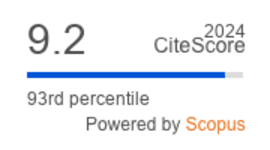Effects of Bioactive Compounds on Autophagy: A Systematic Review
DOI:
https://doi.org/10.36877/pmmb.a0000467Abstract
Autophagy, a crucial cellular process for maintaining homeostasis, plays a significant role in the degradation and recycling of cellular components. Dysregulation of autophagy has been implicated in numerous diseases, including neurodegenerative disorders, cancer, and metabolic conditions. Given the increasing interest in natural, plant-derived compounds for their therapeutic potential, understanding how these compounds influence autophagy is vital. This review aims to provide a comprehensive analysis of the molecular mechanisms through which natural compounds regulate different types of autophagy by targeting specific markers and regulatory signaling pathways such as AMPK, mTOR, and AKT. It also aims to highlight the current gaps in the literature and suggest future research directions to understand these relationships. Research is conducted following the Preferred Reporting Items for Systematic Reviews and Meta-Analysis (PRISMA) guidelines. Studies were extracted from different databases (Scopus, PubMed and Google Scholar) up to 28 February 2024. Inclusion criteria included original studies published in English that examined pure botanical compounds from plant species with direct association to autophagy pathways. A total of 3056 studies, comprised of 68 cell-based studies, 55 animal-based studies, and 39 studies that employed both models were analysed and categorized according to their botanical families and species with a focus on their autophagy activities. This review identified a total of 103 studies investigating the effects of pure compounds on macroautophagy, 2 studies examining microautophagy, and no studies focusing solely on chaperone-mediated autophagy (CMA). However, 4 studies explored the combined effects of macroautophagy and CMA. Additionally, 9 studies focused exclusively on autophagy-related signaling pathways alone, while 40 investigated both macroautophagy and signaling pathways. It highlights the significant role that isolated bioactive compounds from botanical species play in the regulation of autophagy across a range of diseases and future studies can build upon the findings to pave the way for the development of effective plant-based therapies targeting autophagy pathways for disease treatment.
Downloads
Additional Files
Published
How to Cite
Issue
Section
License
Copyright (c) 2025 Ayesha Fauzi, Chi Fung Leong, Long Chiau Ming, Mohamed Kheireddine Aroua, Lai Ti Gew

This work is licensed under a Creative Commons Attribution-NonCommercial 4.0 International License.
Author(s) shall retain the copyright of their work and grant the Journal/Publisher right for the first publication with the work simultaneously licensed under:
Creative Commons Attribution-NonCommercial 4.0 International (CC BY-NC 4.0). This license allows for the copying, distribution and transmission of the work, provided the correct attribution of the original creator is stated. Adaptation and remixing are also permitted.

This broad license intends to facilitate free access to, as well as the unrestricted reuse of, original works of all types for non-commercial purposes.
The author(s) permits HH Publisher to publish this article that has not been submitted elsewhere.



.png)

.jpg)
